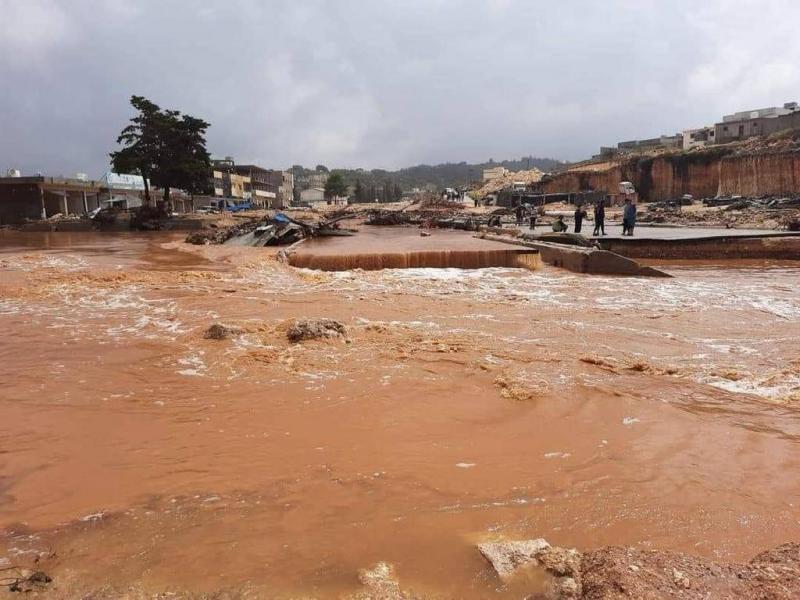The International Organization for Migration (IOM) in Libya reported today, Friday, that "more than 38,640 people have been displaced in the most affected areas of northeastern Libya due to Storm Daniel." The organization stated: "Over 5,000 people are reported dead, with a total of 3,922 deaths recorded in hospitals, according to sources from the World Health Organization."
UN humanitarian aid official Martin Griffiths remarked that "the floods in Libya, which claimed the lives of thousands, represent the worst natural disaster to strike the country in modern history, caused by a collision between climate and capacity." In a UN briefing in Geneva, he noted: "In Libya, where access to Derna remains extremely difficult... this is a tragedy where climate has collided with capacity." He added, "The proposal from the mayor of Derna to establish a maritime corridor for delivering aid could be a viable option since the city overlooks the Mediterranean Sea." He continued: "You will continue to come from land; you will find people fleeing toward the south... from Derna to aid, away from the cities, and therefore you need to support them as well."
The International Committee of the Red Cross is distributing medicines, food, body bags, first aid kits, and household items to local communities in Libya to assist thousands of families affected by the devastating floods. Additional teams from the committee are now being sent to the area to distribute humanitarian assistance. The committee is also enhancing its forensic team's work in Benghazi, distributing 6,000 body bags to assist authorities and the Libyan Red Crescent "in preserving the dignity of the deceased," according to a statement from the committee.
Jean-François, the head of the ICRC mission in Libya, described the disaster as "severe and harsh," noting that a wave reaching 7 meters destroyed buildings, swallowing infrastructure into the sea. Many are missing, bodies have been washed ashore, and homes have been destroyed. Residents of the city are facing immense psychological trauma. He added, "It is heartening to see a sense of cohesion between the population and authorities, as they unite their efforts to provide as much assistance as possible to those affected. However, the recovery of the residents from this level of damage is a long road that will take several months, if not years."
Kitchen tools, bedding, and hygiene supplies are scheduled to be distributed in Derna over the coming weeks in collaboration with the Libyan Red Crescent. The ICRC will also donate medicines to the authorities and the Libyan Red Crescent in the coming days.
As of today, a plane carrying 5,000 body bags has departed from Geneva to Benghazi to assist the Libyan Red Crescent and the Ministry of Health and Emergency Medicine and Support Center (EMSC) with the dignified treatment of the deceased, following the crisis.
The main challenge facing humanitarian work in Libya now is access to flood-affected areas, as roads are either severely deteriorated or completely destroyed. The ICRC is also assessing the risks posed by unexploded ordnance and abandoned ammunition depots in Derna, representing an additional challenge for the population, emergency responders, and authorities now working to overcome these difficulties.




